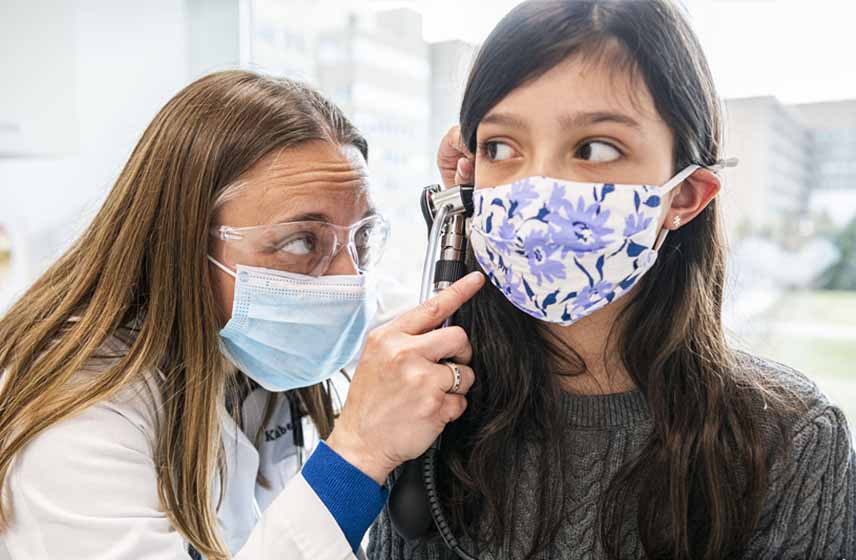Discovering Usual Therapy Options Provided by Your Local Pediatrician for Growing Children
Neighborhood doctors play a crucial function in the health and wellness and development of kids. They provide an array of therapy options, from regular vaccinations to resolve avoidable diseases, to developing testings that can determine very early delays. Nutritional guidance is also given to assure kids keep balanced diets. Nonetheless, there are various other essential aspects of pediatric care that parents need to think about. Understanding these can considerably influence a child's general health.
The Relevance of Regular Check-Ups
While numerous moms and dads might watch examinations as a plain regimen, they play an important role in a kid's overall wellness and development. Normal exams supply pediatricians with the opportunity to check development landmarks, assess developmental progression, and identify any prospective health problems early. These sees allow health care companies to conduct physical exams, track vital signs, and review nutritional demands.

Vaccination Timetables and Immunizations
Vaccination timetables are vital for guaranteeing that babies get essential injections in a timely manner, safeguarding them from various preventable diseases. As youngsters expand, school-age immunization needs end up being progressively essential to preserve public health and wellness standards. Understanding these vaccination standards is vital for parents to ensure their children are adequately protected.
Important Vaccinations for Infants
Guaranteeing that babies get important vaccinations is vital for their health and wellness and the well-being of the community. Pediatricians advise a series of booster shots starting at birth, including vaccines for hepatitis B, diphtheria, tetanus, pertussis (DTaP), Haemophilus influenzae type b (Hib), pneumococcal conjugate (PCV13), and inactivated poliovirus (IPV) These injections shield babies from major diseases that can result in complications or fatality. The booster shot routine commonly complies with details timelines, with doses given at 2, 4, and 6 months of age. In addition, the measles, mumps, and rubella (MMR) vaccine is presented around twelve month. Abiding by these inoculation routines assures that infants develop immunity while adding to herd resistance, securing the neighborhood versus outbreaks.
School-Age Immunization Demands
What immunizations are essential as children relocate into school age? As youngsters change to college, particular inoculations are essential to secure their wellness and the wellness of their peers. The Centers for Illness Control and Prevention (CDC) advises that youngsters get the DTaP (pertussis, tetanus, and diphtheria), IPV (suspended poliovirus), MMR (measles, mumps, and rubella), and varicella (chickenpox) injections. Additionally, the yearly flu vaccine is recommended. These immunizations are typically administered in between ages four to six, though some might be provided previously based on individual health and wellness needs and regional policies. Pediatricians play an essential duty in ensuring that inoculation routines are complied with, providing advice and resources to parents about the relevance of maintaining youngsters vaccinated.
Developing Screenings and Evaluations
Although very early identification of developing delays is essential for effective treatment, numerous moms and dads may not know the value of regular screenings and evaluations. Doctors use developing testings to evaluate a child's development in numerous domains, consisting of physical, cognitive, social, and psychological abilities. These assessments typically happen during regular check-ups and are designed to recognize any kind of prospective problems early.
Standard devices and questionnaires aid doctors gather information concerning a kid's growth, permitting prompt references to professionals if necessary. Assessments can also give insights into a child's staminas and locations that might call for extra assistance.
Moms and dads are encouraged to participate in these screenings proactively, as they play an important function in their youngster's wellness. By joining developmental evaluations, moms and dads can assure that their child gets the ideal sources and interventions, promoting a structure for long-lasting learning and development. Normal testings contribute significantly to a kid's total wellness.
Nourishment and Dietary Assistance
Nutritional wellness plays a significant role in a child's total development and wellness, matching the insights gained from developing screenings. Doctors focus on offering customized nutrition and nutritional advice to fulfill the certain demands of expanding kids. This consists of enlightening moms and dads about balanced diet plans, highlighting the importance of fruits, vegetables, whole grains, and lean healthy proteins.
Pediatricians usually examine a child's growth patterns and nutritional behaviors to recognize any dietary deficiencies or unwanteds. They may recommend age-appropriate part sizes and healthy and balanced treats to encourage much better consuming practices. In addition, doctors attend to usual issues such as food allergies and intolerances, guiding households on just how to manage these obstacles within a healthy and balanced diet.
Behavioral and Mental Health Support
Recognizing that behavioral and emotional health is vital for a kid's general advancement, pediatricians are significantly concentrating on providing thorough support in these locations. They identify that psychological wellness problems can manifest early in life and affect a child's ability to discover, socialize, and prosper. Pediatricians typically carry out testings for anxiety, anxiety, and behavioral disorders during regular visits to identify potential concerns.
They might use counseling or refer family members to mental health and wellness specialists when necessary. Pediatricians also give resources to assist parents handle behavioral obstacles in your home, such as carrying out positive support techniques and developing constant routines. By cultivating open communication, they urge family members to discuss emotional worries and promote an encouraging atmosphere. This way, doctors play a substantial function in guiding kids and their family members in the direction of healthy psychological and behavioral advancement, guaranteeing that kids obtain the all-encompassing treatment they need to grow.
Administration of Acute and Persistent Conditions
Efficient monitoring of both severe and persistent conditions is a basic facet of pediatric care, enhancing the find out this here assistance offered for behavior and mental health and wellness - pediatrician near me. Regional doctors are furnished to identify and deal with a variety of conditions, from usual health problems like bronchial asthma and allergic reactions to more intricate chronic illness such as diabetes and epilepsy
For acute problems, timely treatments, including drugs and helpful therapies, are necessary to alleviate symptoms and advertise recuperation. Doctors frequently offer assistance to moms and dads on home treatment and when to seek further Visit Your URL clinical attention.
Chronic condition monitoring involves ongoing analyses, customized therapy strategies, and routine follow-ups to check progression and adjust treatments as necessary. Education and learning for households is vital, equipping them to manage their youngster's health and wellness properly. This extensive technique guarantees that both persistent and severe wellness concerns are attended to, fostering overall health in growing children.
Frequently Asked Inquiries
What Should I Bring to My Youngster's Pediatric Visit?
For a pediatric appointment, one ought to bring the child's clinical records, insurance coverage info, a list of medications, any kind of problems or questions, and a convenience thing for the youngster to aid reduce anxiousness throughout the browse through.

How Can I Prepare My Youngster for an Examination?
To prepare a kid for an examination, moms and dads need to clarify the visit positively, answer questions honestly, motivate the child to express feelings, and consider bringing a convenience item to aid reduce anxiousness during the appointment.
When Should I Look For a Consultation From a Doctor?
A consultation from a doctor need to be looked for when problems persist after preliminary analyses, treatment alternatives appear limited, or a medical diagnosis feels unpredictable. Parents commonly take advantage of additional viewpoints to ensure their child's ideal care.
What Are Indicators My Youngster Demands Immediate Medical Interest?
Signs indicating a kid needs instant clinical attention include difficulty breathing, relentless high fever, serious discomfort, seizures, indicators of dehydration, uncommon sleepiness, trouble waking, or any sudden adjustments in habits or look that create concern.
How Do I Choose the Right Pediatrician for My Kid?
Choosing the best Pediatrician entails investigating qualifications, seeking referrals from trusted sources, thinking about office area, reviewing interaction design, and examining compatibility with the youngster's needs. It is necessary to prioritize comfort and count on this decision.
Neighborhood doctors play a necessary role in the wellness and growth of kids. Check-ups promote open communication between doctors and moms and dads, enabling family members to deal with problems and receive professional recommendations tailored to their youngster's unique situations. Doctors use developmental screenings to examine a kid's growth in numerous domains, including physical, cognitive, social, and psychological abilities. Doctors focus on Discover More providing tailored nutrition and nutritional assistance to fulfill the details demands of growing youngsters (well child visit in Robbinsville). Comprehending that behavior and emotional health and wellness is important for a youngster's overall growth, pediatricians are increasingly focusing on providing thorough support in these locations